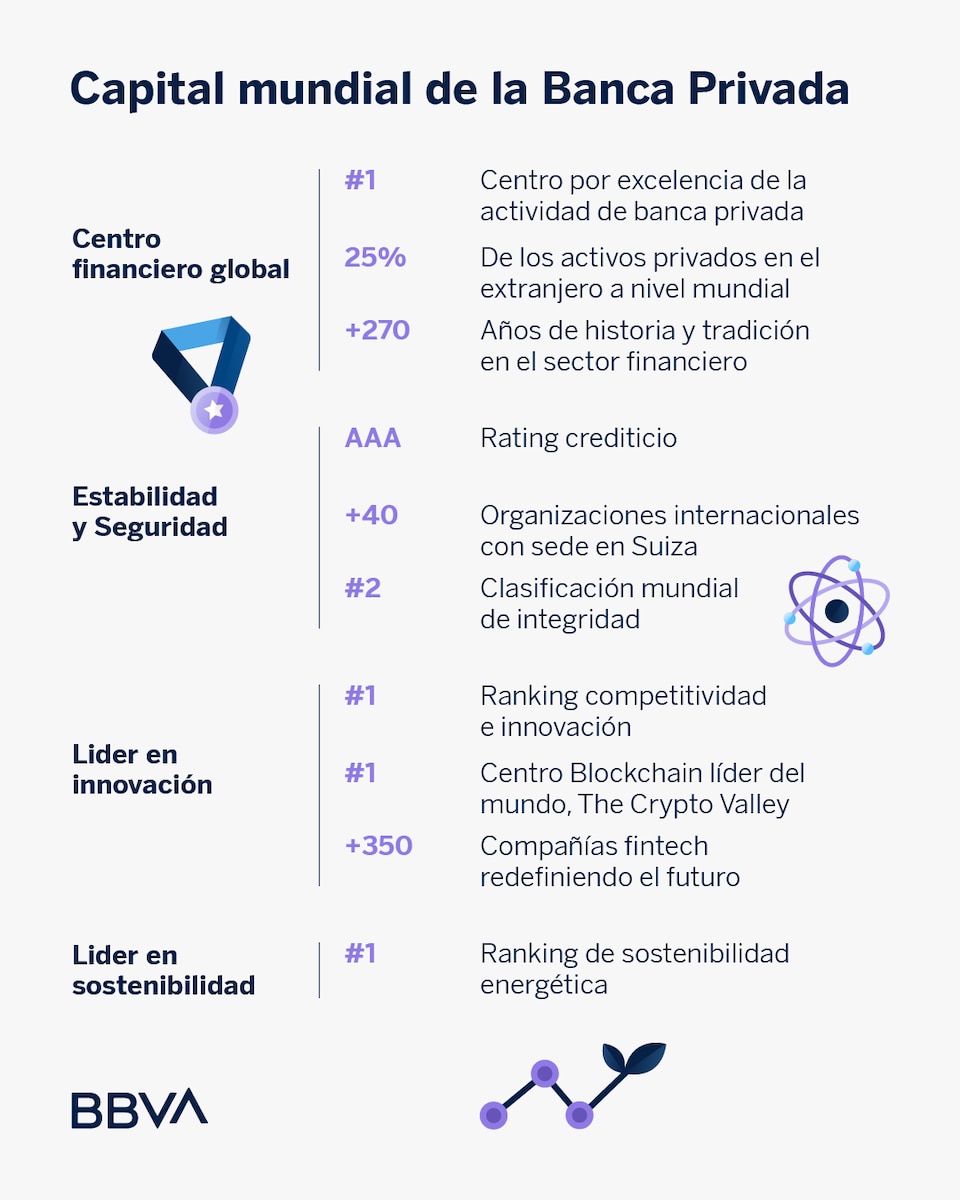Over the past fifteen years, the number of the largest private banking institutions in Switzerland, those managing over CHF 100 billion, has doubled. A program to enhance transparency and international collaboration has helped consolidate the sector.
More than 5% of all salaried jobs in Switzerland are in the financial sector, a sector that in 2022 generated direct gross value added of over 70 billion Swiss francs (CHF). This undeniable reality also encompasses private banking, which in 2021 reached record highs in asset management, despite the fact that in 2022 the assets managed by this sector fell by 11%. The strength, security, and confidentiality offered by the Alpine country place it at the forefront of private banking. It not only manages long-term wealth but has also become an efficient and specialized advisor for making optimal decisions.
The latest report by the consultancy firm KPMG outlines the landscape of private banking in Switzerland. Between 2010 and 2023, the number of institutions managing assets exceeding CHF 100 billion has doubled from 4 to 8, not including UBS. Meanwhile, the medium-sized private banking sector, managing assets between CHF 10 billion and CHF 100 billion, has decreased from 35 to 25 institutions; and the smallest institutions, those managing less than CHF 10 billion, have seen a significant decline from 122 to 56.
Both the international auditing firm Deloitte and the well-regarded TLG agree that the reason for the decline in medium and small private banking is the so-called Swiss Bank Program, an initiative that has increased the transparency of Swiss banking, international collaboration, and efforts to prevent money laundering.
As a result, Swiss banking is now more transparent and reputable. This has attracted larger, internationally renowned giants such as JPMorgan, Citigroup, and Vontobel, among others. In addition, to make a more accurate assessment of the state of Swiss banking, one must look at the volume of assets under management, which really demonstrates the country's strength and its attraction for capital.

Switzerland remains a major draw
Switzerland and its private banks managed CHF 3.9 trillion—American trillions—in assets under management in 2021. Focusing exclusively on private banking, the data indicates a monetary volume of CHF 2.6 trillion in 2022, despite the poor market performance.
Moreover, according to the latest Global Wealth Report published annually by the Boston Consulting Group (BCG), Switzerland remains the world's leading financial center for managing and safeguarding the wealth of high net worth individuals. More than CHF 2.1 trillion is held in the country, ahead of Hong Kong and Singapore.
Why do investors choose Switzerland?
Despite being a small country with only 8.7 million inhabitants, Switzerland offers peace of mind and security. In fact, despite the reduction in the number of institutions, assets under management by the banks reached record highs in 2021 and are projected to recover by the end of 2023.
The reasons why Switzerland is the country of choice lie in its stability and security. Free from political turbulence, it serves as a great refuge for those who fear the strong inflationary effects in emerging countries, such as many in Latin America. Additionally, the country's laws guarantee greater privacy.
Another reason is the stability of its currency, the Swiss franc, known as the most stable currency in the world. Holding a portion of money in Swiss francs assures many savers that their purchasing power will remain more stable than if they were to keep the same amount in dollars or euros, not to mention other currencies.
- Swiss monetary policy and financial markets
Swiss monetary policy has, almost since the beginning of the 20th century, advocated for the stability of its currency. The best evidence of this stability is found in the inflation or depreciation of the currency over the years. The purchasing power of 100 francs in 1956 is equivalent to 454.46 Swiss francs in 2023. This information becomes particularly relevant when compared to the performance of the U.S. dollar, the world's main store of value. The U.S. dollar has depreciated more than twice as much against the franc during this time period. In fact, 100 dollars in 1956 is equivalent to 1,120.91 U.S. dollars in 2023.
- Greater privacy
Finally, Switzerland is a party to the Foreign Account Tax Compliance Act (FATCA), which requires Swiss banks to disclose information about U.S. account holders or face penalties. The country signed a similar agreement with the European Union, effectively ending privacy for Swiss bank account holders in the EU. Despite these changes, Switzerland has long maintained a top position in the Financial Secrecy Index and continues to offer enhanced privacy.

